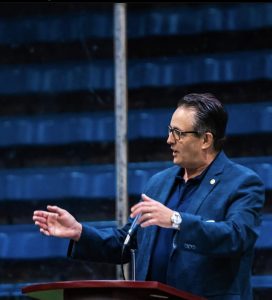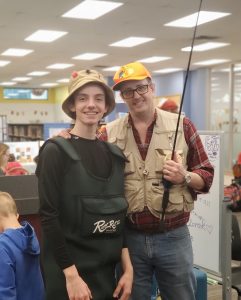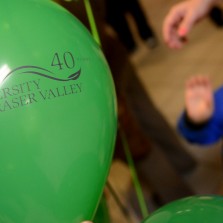Finding Passion in Community Volunteering

Since he was 19, Paul Horn (Cert ’08) has been involved in the sport of lacrosse. He discovered it through a friend who invited him to attend a game. The friend stopped attending a short time later, but Horn instantly fell in love with the sport, and has been an active volunteer in the lacrosse community since, including taking the role of president of the New Westminster Salmonbellies.
Volunteerism is something Horn, who earned his certificate in Teacher Education for Elementary at UFV, feels strongly about, even in his current role as mayor of Mission, BC. In fact, it’s no surprise that he has taken on such a community-focused role, considering how active he is in his own community.
“There’s a saying in community development,” says Horn. “People talk about ‘third spaces’. We have our work, we have our family and home, and if we’re lucky, we have a third space— a place that meets a need that can’t quite be met in either one of those other places.”
For Horn, that third space is lacrosse, but it isn’t the only space where he volunteers. His life’s work before becoming mayor included volunteering in the community around mental health in organizations such as the Stone Soup Initiative. He even started his own company, Bootstrap Consulting, to support non-profits and small businesses. And over the years, Horn has continued to be an enthusiastic supporter of UFV.
Despite how busy he is as mayor, Horn continues to work hard in his community to share his passion, the secret to his success.
“In Western society, we have this crazy bad habit of saying to people, ‘Don’t put yourself out there too much because that won’t create space for others,’” says Horn. “And it’s the exact opposite of the truth. I think it’s about figuring out what you’re passionate about and sharing with people.”
It’s through sharing his own passions that Paul has developed his own career and made lasting friendships with fellow community members.
“The number one thing I’ve enjoyed about volunteering is the friendships I develop,” says Horn. “Get to know the people you’re volunteering with. And if you don’t like them, you’re probably not going to enjoy the work. Don’t skip out on the stuff afterwards. And I see this— people have a meeting and then afterwards they’ll sit around and have a coffee and just get to know each other. Don’t leave before that.”
“I think people can do it in ways that don’t even get called ‘being a volunteer’, such as helping a neighbor, or cleaning up garbage in your neighbourhood.”
For Horn, its these connections that have continued to make the work easier to do, but also meaningful.
“I was sitting in a meeting earlier today, with two people that I have deep friendships with, and both of them are seniors,” he says. “One is already a Freedom of the City recipient, and the other, Bob Ingram, is going to receive the honour on Tuesday evening. And they both just set the tone for how I want to be in my retirement. I think Bob is 82 or 83. The man is constantly busy and he’s healthier and happier than all the people I know who aren’t.”

Horn hopes to see more and more people become involved in their communities, even if it is in just a small way.
“I think people can do it in ways that don’t even get called ‘being a volunteer’, such as helping a neighbor, or cleaning up garbage in your neighbourhood. You don’t always have to join something to become a volunteer,” says Horn.
“Being a volunteer is not something that is hard to become. You can find opportunities to do it at your kids’ school, your local sports association.”
According to Horn, there is always a strong demand for volunteers of all skills and interests. But he believes it’s most important, to volunteer because you want to, not due to some obligation. This is how he built his career around supporting mental health needs, and how he continues to be a strong proponent of local lacrosse leagues.
“Your passion decides which way you should go, and that’s the payment in it,” he says. “I think we should never do things because of guilt. We should do them out of love and passion. And that will keep you involved for the long haul.”

